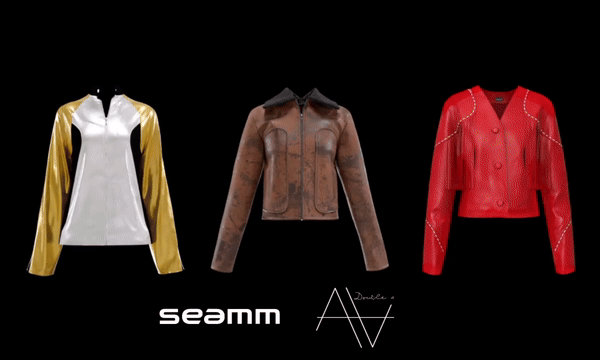The Digital Product Passport
DPPs will be obligatory for every product category that falls under the governance of delegated acts outlined in the Ecodesign for Sustainable Products Regulation (ESPR). Read more.png&w=1920&q=75)
In the dynamic world of fashion, a groundbreaking innovation is set to revolutionize how we perceive and interact with our clothing and accessories. Welcome to the era of the Digital Product Passport (DPP), an avant-garde tool seamlessly connecting the physical and digital worlds of fashion items.
Unveiling the Digital Product Passport
At its core, the DPP is a digital twin of physical products, offering comprehensive insights into their origin, history, and ownership. This isn't just about tracking and tracing or authentication; it's about enlightening consumers with essential information at their fingertips.
The EU's Green Initiative
Crafted as part of the EU's ambitious Green Deal, the Digital Product Passport Regulation (DPP) is a stride towards achieving climate neutrality by 2050. This regulation represents a movement that drives transparency in product sustainability and fosters an ecosystem where eco-friendly products are normalized.
Mandatory Compliance: A New Standard
The DPP is set to become a non-negotiable aspect of product introduction in the EU market. Its implementation, governed by the Ecodesign for Sustainable Products Regulation (ESPR), will be mandatory for a wide range of products. From 2027, expect to see DPPs for products as diverse as electric vehicle batteries to fashion items like textiles and footwear.
The Early Adopters
While 2027 is the official start, many brands are not waiting to jump on the bandwagon. As early as 2024, we might start seeing proactive adoption among forward-thinking brands, setting a new standard in consumer transparency.
Mugler, a renowned name in the fashion world, is already embracing the future with its innovative use of digital passports. Every authentic Mugler handbag is now accompanied by a unique, blockchain-backed digital passport. This pioneering approach secures and verifies the authenticity of each handbag, and also opens the door to a multitude of exclusive benefits for the owner. The process of acquiring this digital passport is as chic and effortless as the brand itself. Owners can easily download and store it on their mobile devices by scanning a QR code discreetly placed behind the interior pocket of the bag. This integration of cutting-edge technology with luxury fashion enhances the customer experience and sets a new standard in the industry for product authenticity and customer engagement.

Designing the Digital Product Passport
The DPP isn't just another digital document. It's a unique identifier, that connects products or components in a global, open standard. Its decentralized data storage ensures data integrity, while access is meticulously controlled on a need-to-know basis.
What's Inside a DPP?
A DPP is a treasure trove of information, encompassing everything from durability and reliability to environmental impacts and waste generation. It’s a comprehensive snapshot of a product’s journey and its ecological footprint.
Components of the EU Digital Product Passport
The DPP ecosystem consists of a physical data carrier like a QR code or RFID chip, a robust data storage and access system, and harmonized standards for information encoding. This trifecta ensures that the DPP is informative, secure and user-friendly.
The Benefits: Beyond Transparency

The DPP offers multifaceted benefits:
Instant access to product information
Assurance of authenticity and ownership
Enhanced product lifecycle management
Integration with customer relationship management (CRM)
A virtual representation of physical items, bridging the physical-digital divide
Architectural Variations in DPP
The architecture of DPPs varies from centralized systems accessed via web or app to more advanced, blockchain-based formats. These systems can range from permissioned blockchains within closed ecosystems to tokenized passports on public blockchains, thereby enhancing interoperability and security.
In Conclusion
The Digital Product Passport is not just a regulatory requirement; it's a transformative tool redefining the relationship between consumers, products, and the environment. As we embark on this journey towards a more transparent and sustainable future, the fashion industry stands at the forefront, embracing innovation and responsibility with open arms.


